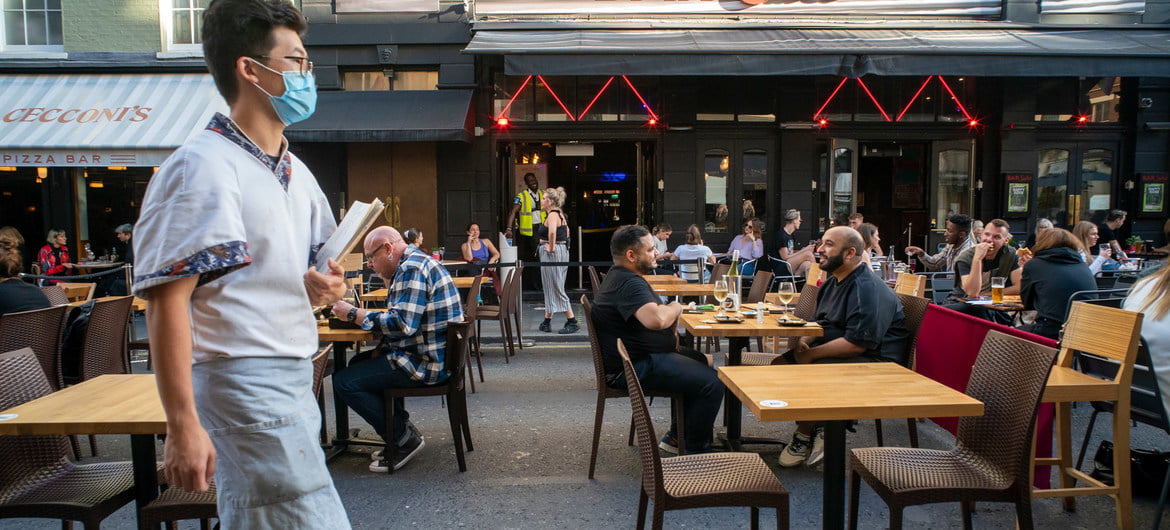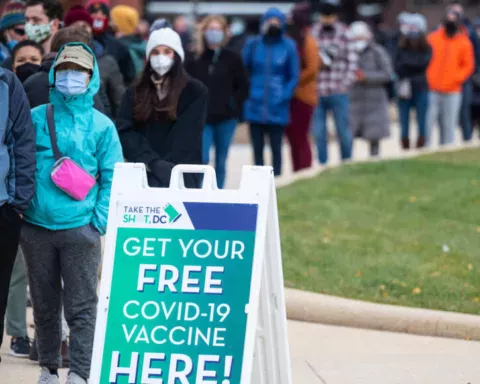“I know there’s fatigue but the virus has shown that when we let our guard down, it can surge back at breakneck speed and threaten hospitals and health systems”, agency chief Tedros Adhanam Ghebreyesus told journalists on Monday.
Coronavirus Portal & News Updates
Readers can find information and guidance on the outbreak of the novel coronavirus (2019-nCoV) from the UN, World Health Organization and UN agencies here.For daily news updates from UN News, click here.
Last week, WHO reported that the pandemic has entered a worrying phase as the northern hemisphere winter season approaches.
At the time, the caseload in Europe was almost three times higher than during the first peak of the pandemic in March.
Break transmission chains
Tedros said he was encouraged to see many leaders communicating with their populations about targeted measures necessary to slow coronavirus spread and protect health workers and health systems.
He pointed out that as cases rise, the number of people needing hospital beds and intensive care also increases. And although nurses and doctors now have a much better understanding of how best to treat people with the virus, the situation could put them and patients at risk.
“So, it’s important that all governments focus on the fundamentals that help to break the chains of transmission and save both lives and livelihoods”, he said.
“This means active case finding, cluster investigations, isolating all cases, quarantining contacts, ensuring good clinical care, supporting and protecting health workers and protecting the vulnerable.”
Tedros underlined that everyone also has a role to play through practicing physical distancing, wearing masks, avoiding crowds and other recommended measures.
We Are Family
WHO announced that one of the biggest anthems from the disco era is being refashioned as a “clarion call” for the COVID-19 pandemic.
‘We Are Family’, by the American group Sister Sledge, will be featured in a new campaign to promote global solidarity, unity and collaboration in the face of the disease.
Kim Sledge, one of the four sisters who sang the dancefloor classic, will re-record a special edition of the 1979 hit which will be released online on 9 November.
Part of the proceeds will go towards pandemic response and strengthening health services around the world.
“This is a solidarity effort for a global concern”, said Ms. Sledge, speaking via video link.
“We all – every tribe, every tongue, every nation, every people – have the banner of love over us, and desire to bring us together in this world to fight the kinds of things that come against who we are.”
Get up everybody and sing
The new version of ‘We Are Family’ will be accompanied by a video featuring celebrities, frontline heroes and members of the public.
People worldwide are encouraged to join the #WeAreFamily campaign, launched on Monday, by recording videos with their close family and friends singing the song and then sharing their efforts on social media.
The World We Want organization, a global social impact enterprise, is also a partner in the campaign.
Founder Natasha Mudhar said she was asked why the song was being released now, and not when the pandemic was first declared back in March.
“And the reason why now is that the pandemic that we are all facing is as relevant as it is today as it was five, six months ago”, she said.
“With our music video that we’re producing…we want it to be kind of a real clarion call that this beautiful, real, global world family is coming together in unity, in solidarity, not just in 2020 but also looking to 2021 as well, to address any global health challenge that we ever face, including and beyond the COVID pandemic.”





